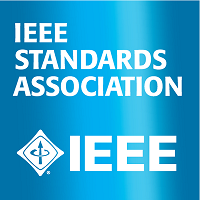 IEEE activities in eHealth intended to expand interoperability, grow industry ecosystem and support new life-saving capabilities
IEEE activities in eHealth intended to expand interoperability, grow industry ecosystem and support new life-saving capabilities
IEEE (@IEEEorg), the world’s largest professional organization dedicated to advancing technology for humanity, announced a new standard and two new standards development projects designed to support plug-and-play, interoperable communications across eHealth devices. Also, the IEEE Standards Association (IEEE-SA) (@IEESA)has signed a memorandum of understanding (MoU) with the Regenstrief Institute, an internationally respected, non-profit, medical research organization. The Regenstrief Institute houses the database for the LOINC® (Logical Observation Identifiers Names and Codes) standard medical vocabulary for exchanging health information between facilities.
“The IEEE-SA’s efforts in eHealth are all focused on expanding interoperability standards and supporting the growth of the eHealth ecosystem and new life-saving capabilities,” said Konstantinos Karachalios, managing director, IEEE-SA. “Through both standardization and collaboration, the IEEE-SA strives to improve the quality of eHealth and the well being of people worldwide by providing a global platform for eHealth stakeholders across regions and technologies to openly collaborate and build consensus. The new partnership and standardization milestones that we are announcing today are evidence of this effort.”
The MoU between the Regenstrief Institute (@Regenstrief) and the IEEE-SA allows for collaboration among the developers of LOINC and IEEE 11073™ standards. By supporting interoperable communications among both traditional medical devices and personal health devices, IEEE 11073 standards assist in the support of patients living independently with chronic diseases like asthma, diabetes, congestive heart failure, chronic obstructive pulmonary diseases, high blood pressure, stroke and atrial fibrillation. The IEEE and LOINC collaboration, in partnership with U.S. National Institute of Standards and Technology (NIST), is intended to enhance the value proposition of IEEE 11073 nomenclature across the medical-device industry by leveraging both standardized terminology and methods of data communication.
The new eHealth standard approved by the IEEE-SA is IEEE 2410™-2015, Biometrics Open Protocol Standard. The “BOPS” standard is intended to support continuous protection of biometric data by providing identity assertion, role gathering, multi-level access control, assurance and auditing. Sponsored by the IEEE Communications Society (http://www.comsoc.org), the standard can be used with software running on a client device (such as a smartphone), a trusted BOPS server and an intrusion-detection system (IDS).
Meanwhile, development work has launched on IEEE P2650™, Draft Standard For Enabling Mobile Device Platforms To Be Used As Pre-Screening Audiometric Systems, and IEEE P3333.2.5™, Draft Standard For Bio-CAD File Format for Medical Three-Dimensional (3D) Printing.
The purpose of IEEE P2650 is to improve the availability, accessibility and affordability of first-level screening for hearing-impaired people. Whereas screening and diagnosis of hearing impairment is typically today performed by trained audiologists and/or clinicians using specialized equipment, IEEE P2650 is being developed to enhance mobile platforms and linked portable/wearable devices. When completed, the standard is intended to establish performance, interoperability and validation requirements of the devices and software used for audiometric pre-screening.
Work on IEEE P3333.2.5 is underway to define an accurate file format system for computer-aided design (CAD) that is optimized for the unique requirements of medical 3D printing. High reliability in producing useful and cost-effective products is especially important in medical 3D printing. When completed, the standard is intended to address medical 3D printing services such as anatomic and pathologic models and medical-instrument printing.
About the IEEE Standards Association
The IEEE Standards Association, a globally recognized standards-setting body within IEEE, develops consensus standards through an open process that engages industry and brings together a broad stakeholder community. IEEE standards set specifications and best practices based on current scientific and technological knowledge. The IEEE-SA has a portfolio of over 1,100 active standards and more than 500 standards under development.
About IEEE
IEEE, a large, global technical professional organization, is dedicated to advancing technology for the benefit of humanity. Through its highly cited publications, conferences, technology standards, and professional and educational activities, IEEE is the trusted voice on a wide variety of areas ranging from aerospace systems, computers and telecommunications to biomedical engineering, electric power and consumer electronics.
